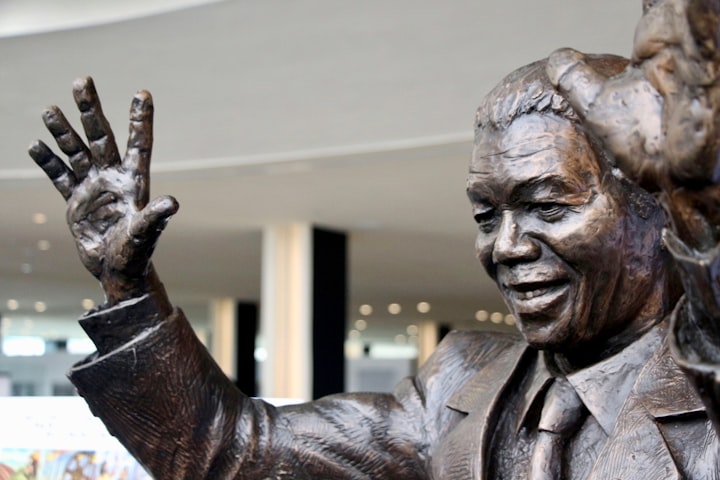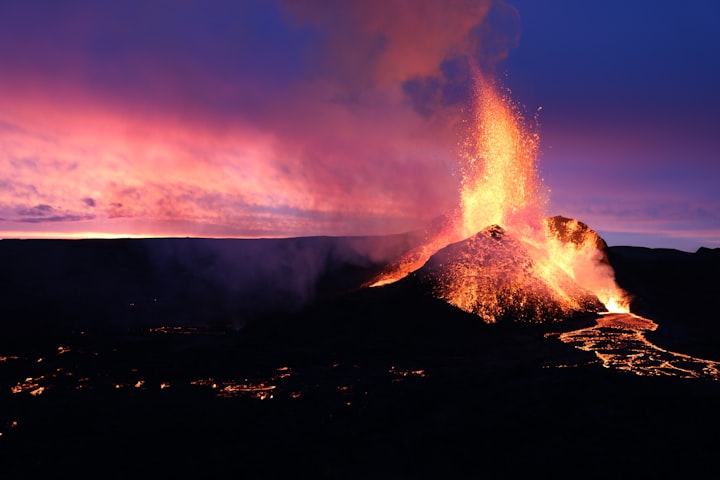South African anti-apartheid revolutionary, statesman, and philanthropist Sir Nelson Mandela
Country's first black head of state and the first elected in a fully representative democratic election.

His lifelong friend and colleague Oliver Tambo became the national chairman of the organization. Mandela was elected president of the party in 1991 at the ANC's first congress in South Africa since the party's closure in 1960 and his lifelong friend Oliver Tambo became the party's national chairman. He served from 1998 to 1999 as Secretary-General of the United Nations and from 1994 to 1999 was President of South Africa.
On 11 February 1990, the South African government that succeeded Botha de Klerk released him from prison. Following his release, Mandela was elected vice-president of the ANC, and in July 1991 became president of his party.
Mandela took part in formal negotiations to end white minority rule and was elected ANC President in 1991, replacing his ailing friend Oliver Tambo. He led the ANC in talks with de Klerk to end apartheid and brought about a peaceful transition to a non-racial democracy in South Africa. In 1993, Mandela and President F. W. Clerk received the Nobel Peace Prize and Mandela was elected in his lifetime for the first time on April 27, 1994.
In 1991 Mandela was elected President of the African National Congress and his lifelong friend and colleague Oliver Tambo became national chairman. In 1993 Mandela and President de Klerk received the Nobel Peace Prize together for their work to end apartheid in South Africa. After his release from prison, Mandela negotiated with President F. W. de Klerk over the first international election.
Mandela helped form the African National Congress (ANC), South Africa's largest party in 1944, which aimed to end the National Party's injustices against black people, a manifestation of white supremacy in Africa. Through the ANC Youth League, Mandela was able to take organized political action against apartheid. The fight against apartheid began in 1948, and Mandela was first arrested in 1952.
In June 1952, Mandela led a campaign against unjust laws, a South African party that carried out various acts of rebellion in major cities. It was the first major political movement to fight injustice.
In 1952, Oliver Tambo and Mandela established South Africa's first legal system in Johannesburg, especially in cases that emerged from apartheid law after 1948. In the same year he and his colleague Oliver Tambo, also a former ANC leader, launched First Black Law Practice, which specializes in apartheid cases, namely
Nelson Mandela was South Africa's first black president elected to carry out his anti-apartheid role after serving his prison term. Nelson Mandela was a civil rights, political activist, and philanthropist who from 1994 to 1999, became South Africa's first black president. Nelson Rolihlahla Mandela joined the African National Congress in 1944 and was involved in the anti-apartheid policies of the ruling national parties in 1948.
South African activist and former president Nelson Mandela (1918-192013) contributed to ending apartheid and is now a global human rights champion. Mandela, who had been a member of the African National Congress Party since the early 1940s, was the leader of peaceful protests and armed struggle against the oppressive white supremacy in South Africa. His actions forced him to spend 30 years in prison and made him a member of an anti-apartheid movement in the country.
Nelson Rolihlahla Mandela was president of the ANC from 1991 to 1997 as African nationalist and socialist Nelson Rolihlahla Mandela. He was the first head of the black South African state and became the first democratically elected representative in a democratic election. His government focused on ending apartheid, fighting racism, and promoting racial reconciliation.
Nelson Mandela was the son of King Henry Mandela of Madiba's House of Xhosa-speaking Thembu people. After his father's death, he was raised by Jongintaba, the governor of the Thembu people.
Mandela continued to be involved in politics, holding rallies and giving official speeches and speeches. He held other ANC leadership positions as he helped to revive the party and opposed the apartheid policies of the ruling National Party.
At that time, the South African government was divided and racist, and Frederik Willem de Klerk, South Africa's last white president, allowed international pressure to loosen. This time a historic meeting with De Klerk led the two leaders to realize that only consensus between whites and blacks could prevent civil war in South Africa.
The following year, the ANC adopted the ANC's plan to achieve full citizenship for all South Africans through boycotts, strikes, civil disobedience, and other non-violent means. In the 1950s, Africans (white South Africans of Dutch descent) ruled South Africa and introduced a modern form of apartheid. The apartheid policies of the European government deprive black South Africans (people of color in South Africa) of basic human rights.
Under the modern apartheid system, black South Africans had no say in South Africa, gathered as whites, and could only go to their places with government permission.
After organizing peaceful protests against the banned South African Communist Party (SACP) in 1961, he formed the We Sizwe militia and launched a campaign to overthrow the government. A completely white National Party government instituted apartheid, a white supremacist system, and Mandela and the ANC pledged to overthrow him. Mandela became a national hero and became a symbol of apartheid - injustice - during his imprisonment.
Nelson Mandela helped transform his nation, but the world by spreading the message of freedom, equality, and human dignity. From 1994 to 1999 he became president of the South African government after his release from prison in 1990.
Rolihlahla Mandela was born as Madiba's son on July 18, 1918, in Mvezo village in the Eastern Cape. His mother was Nonqaphi Nosekeni and his father, Nkosi Mphakanyiswa Gadla Mandela, was a senior adviser to the ruling Thembu king, Jongintaba Dalindyebo. When Mandela was 12 in 1930, his father died and he became the reigning king of the great Mqhekezweni1 area.
When he heard the stories of Rolihlahla Mandela's ancestors fighting valiantly in war and war, he dreamed of joining the liberation struggle of the Thembu people.
About the Creator
saurab sharma
Hello there, I am a content writer and a freelancer,





Comments
There are no comments for this story
Be the first to respond and start the conversation.